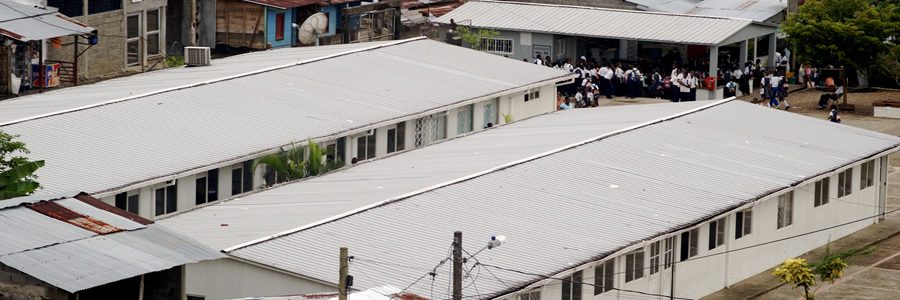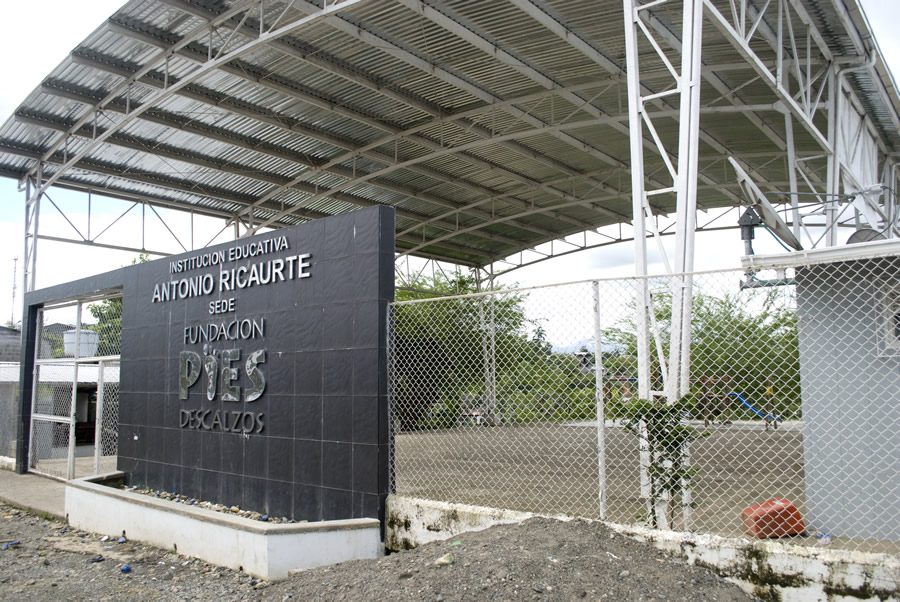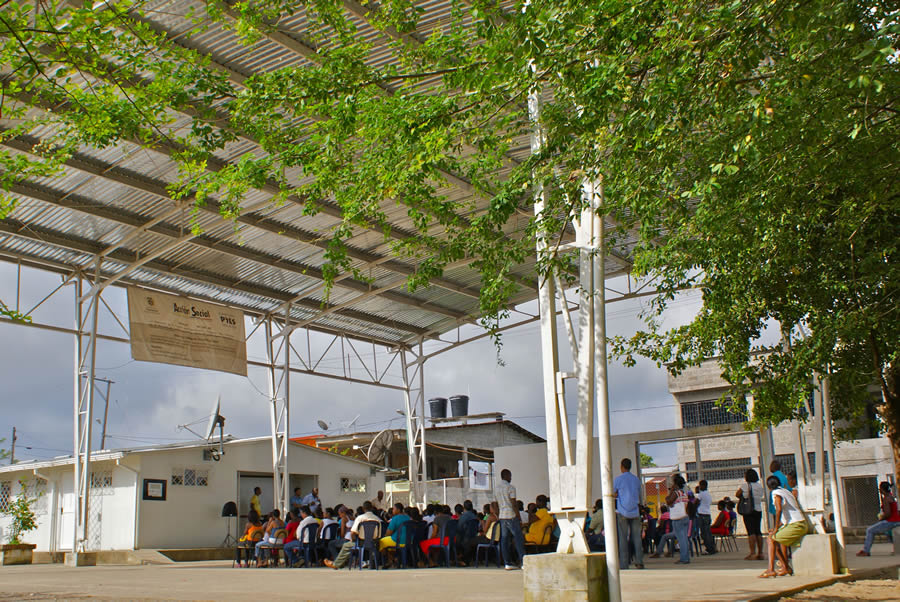Municipality of Quibdó, capital of the Chocó Department, Colombia
In collaboration with

January to May 2014
We improved water access sources, repaired water collection systems at the Pies Descalzos School and Development Center in Quibdó, and provided water management training to the educational community.
Objectives
- Repair the water collection, storage and distribution sources at the Pies Descalzos school in Quibdó.
- Build water distribution stations with filters that guarantee drinking water.
- Develop a training program for the educational community on the use and management of water.
Beneficiaries
1,370 direct
650 girls and boys, 20 teachers and 700 members of the community
7,000 indirect
Inhabitants (of Quibdó’s VI Commune (district), the site of the Barefoot School and Community Centre).———————————————————————————————————

On the ground
The Atrato River basin receives the waste and waste that the communities dump daily and does not have an aqueduct and sewage service. The inhabitants use rainwater stored in tanks without getting any treatment before use.
Between 1999 and 2005, more than 60,000 people were the victims of forced displacement due to the violence in Colombia, in the country’s Chocó Department. Of them, around half found their way to its capital Quibdó, building shantytowns in the areas surrounding it. These border the River Atrato basin, which occupies 60% of the Department’s territory. This and other neighbouring river basins are the dumping grounds for the refuse and waste disposed of by these communities every day. To make matters worse, the area has no proper water or sewage infrastructure, meaning residents have to use rainwater for their daily needs, which is stored in tanks and other containers and is completely untreated before use.

In detail
The Pies Descalzos School and Community Centre, in Quibdó’s VI Commune, is attended by 650 children from the surrounding community and also benefits young people and adults from local neighbourhoods, who participate in school, sporting, recreational and community activities organised by the Barefoot Foundation. Carrying out these activities means that a great deal of water is used by all those going to the school: with this project, we seek to make a contribution by improving its access and the drinking quality. Currently, the school has tanks (elevated, ground-level and underground) that collect rainwater, which is then distributed to the school’s kitchen and bathrooms and to some external points. Given that rainwater is used, it needs action to help improve its quality so that it is suitable for preparing food and for direct consumption. This project is also designed to contribute to the education of students, teachers and parents on the use and handling of water, to raise awareness of the importance of this issue amongst members of the community and ensure that these actions are sustainable over time.
Why Quibdó?
The project will be carried out in Quibdó, the capital of the Chocó Department. This is an area in the northwest of Colombia, next to the Pacific Ocean. The Department is crossed by three river basins: those of the Rivers Atrato, Baudó and San Juan. It is located within an Intertropical Convergence Zone: in other words, where the trade winds of both hemispheres converge. This makes it one of the world’s rainiest areas, with a hot, humid climate that also contributes to the presence of great biodiversity.
Between 1996 and 2004, El Chocó was home to 89% of the country’s displaced population, placing it at the epicentre of this terrible phenomenon.
The majority of this community is made up of displaced families facing serious difficulties as a result of poverty, unemployment, an absence of public services and a lack of access to drinking water.
What are we going to do?
- Repair and improve the water collection, storage and distribution facilities at the Barefoot Foundation School and Community Centre in Quibdó.
- Building water distribution stations with filters guaranteeing access to drinking water in areas such as the school’s kitchen, washbasins and bathrooms.
- Develop a training programme for the education community on the use and handling of water.


